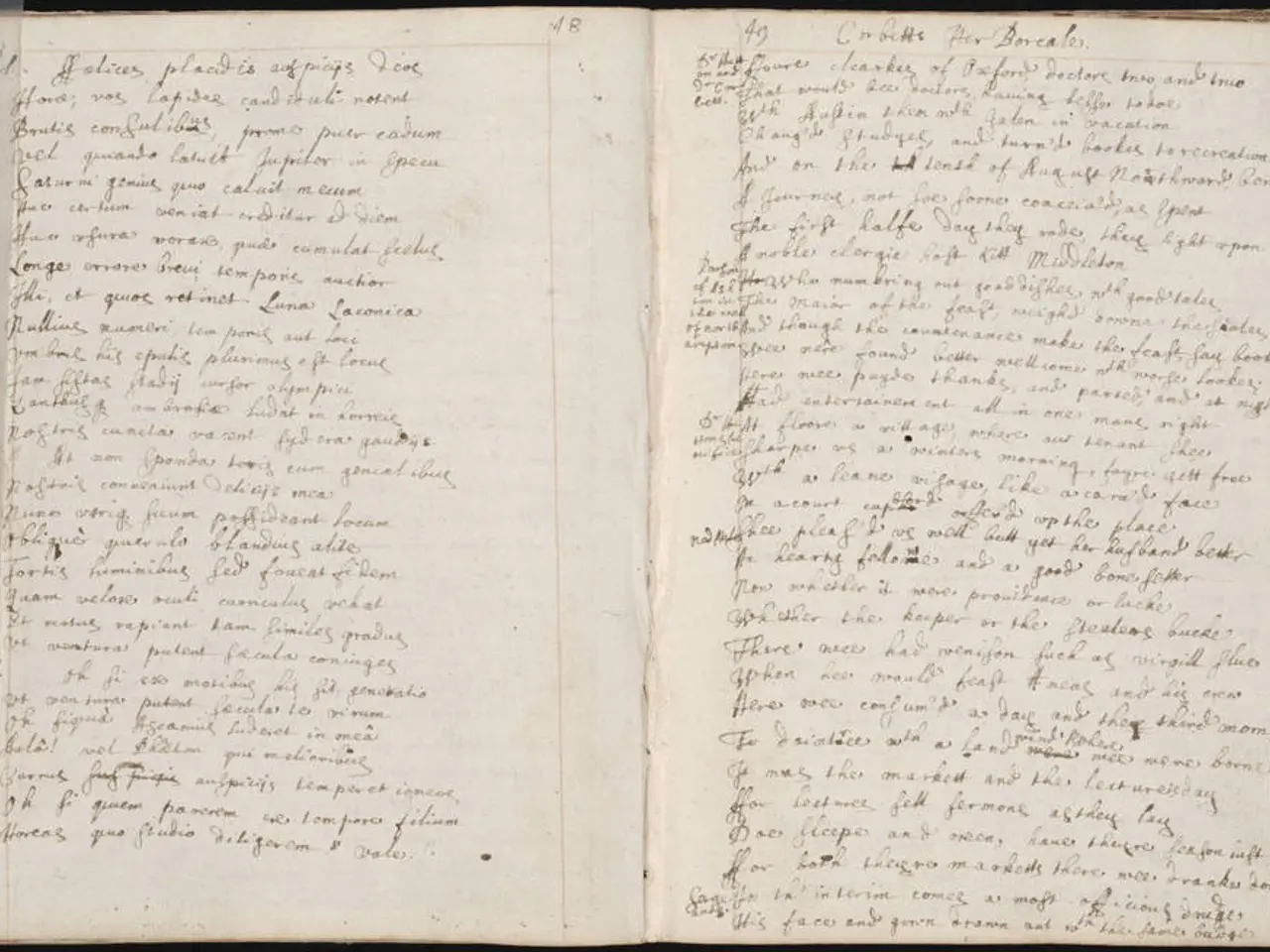Exploring Literary Landscapes in Augustan Rome: An All-encompassing Review (Uncharged Study Notes)
During the Augustan era, literature played a significant role in promoting imperial propaganda, glorifying Augustus and his regime, and reinforcing Roman values. This cultural shift was masterfully orchestrated by the emperor, who used poets and writers to create an environment that celebrated him as the restorer of peace and stability after the civil wars.
Augustus's patronage extended to literary figures such as Virgil, Horace, and Livy, who either received his support or composed works that reinforced his political agenda. For instance, Virgil's Aeneid glorified Rome's founding and destiny, aligning it with Augustus’ leadership, while Horace's Odes expressed praise for the emperor and Roman ideals of order and patriotism.
This literature helped construct an idealized image of Augustus that resonated with both the elite and the broader Roman populace, fostering loyalty and social cohesion. The poets' lavish praise reflected both genuine admiration and the political necessity of endorsing the new regime, as writers often depended on imperial patronage.
Literature was not the only medium used for propaganda during this period. Public monuments, coins, and the imperial cult also reinforced Augustus’ divinely sanctioned rule. This cultural control extended under later emperors, such as Vespasian, who also manipulated literature and historiography to portray themselves as divinely favored and peace-bringing rulers.
Livy's history emphasized the moral virtues of Rome's legendary past and contrasted them with the perceived decay of contemporary Rome. Horace's works often focused on themes of moderation, pleasure, and moral improvement, offering a contrast to the more grandiose and propagandistic tone of Virgil's works. Ovid's "Metamorphoses" reinterpreted Greek and Roman myths, often celebrating the power of transformation, individual freedom, and love.
The literary culture of Augustan Rome had a lasting impact on European literature, particularly during the Renaissance. Works from this era continue to be studied and admired by later generations of writers, historians, and scholars, shedding light on the manner in which literature may reflect, mold, and question social values.
The Augustan ideal of the relationship between literature and power is still relevant today, as literature and art continue to be used as tools for political expression and social commentary. The exploration of themes such as responsibility, authority, moral reform, and transformation in Augustan literature offers valuable insights into the dynamics of power and culture in ancient Rome.
- The analysis of Augustan literature reveals that poets like Virgil, Horace, and Livy used their works as tools for promoting imperial propaganda, glorifying Augustus and reinforcing Roman values, such as Rome's destiny, order, patriotism, and moral improvement.
- In education and self-development, the study of Augustan literature is significant because it demonstrates how characters, themes, and the literary works themselves can be manipulated to shape public opinion, strengthen social cohesion, and reflect, mold, and question social values.
- The ideals of power and culture established during the Augustan era continue to impact literature and art today, as modern creators frequently use their works for political expression and social commentary, addressing themes such as responsibility, authority, moral reform, and transformation.




